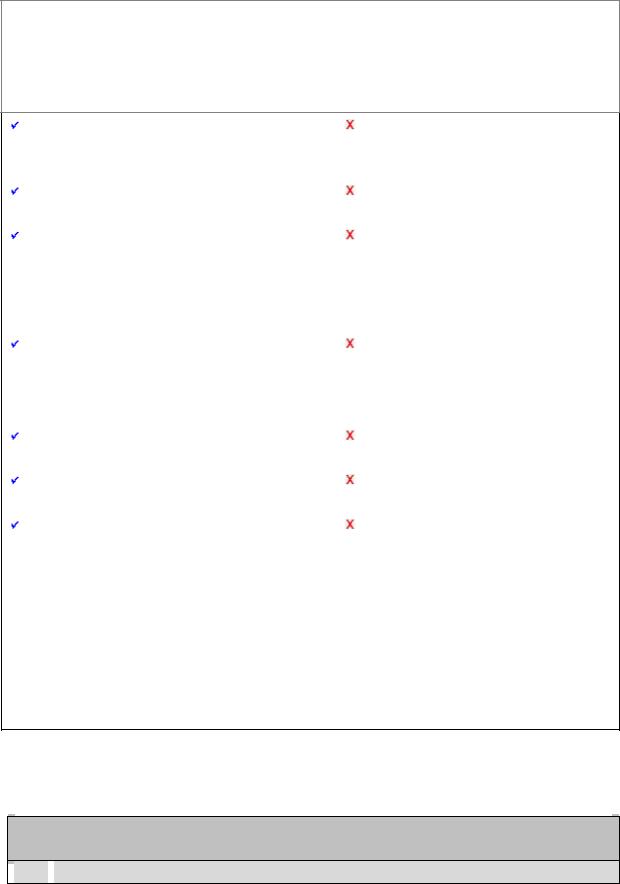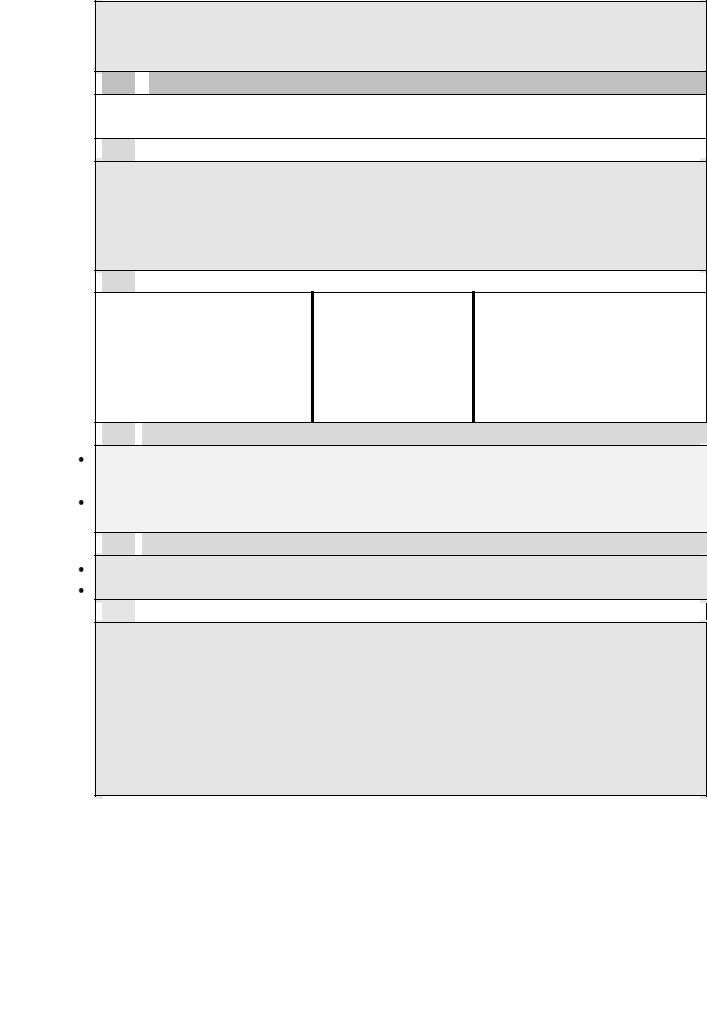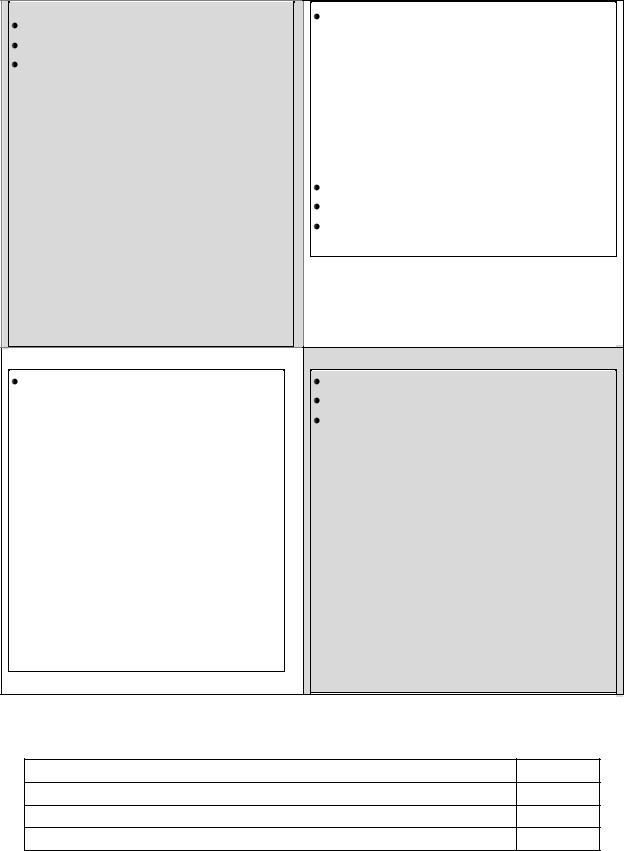
YEAR OF STUDY II
.pdf
Exercise 4SR.
Read Jon‘s biography from his personal webpage and answer the questions that follow:
Jon‘s Homepage
Hi, I‘m Jon Larsson. Welcome to my personal webpage.
I‘m a 42 year-old Marketing Manager for a major multinational software company. I‘m originally from Sweden, but have spent most of my life in the UK, so I‘m bilingual (I also speak fluent Italian and French). I am currently living in Edinburgh, the beautiful capital of Scotland. However, I feel I need a new challenge in my life, both personally and professionally, so I have decided on a change of direction. I am interested in a fresh start abroad and in a new area of business – I‘ve been working with computers for too long!
I have a great deal of experience in marketing having worked in this area for over 10 years. I planned and implemented projects which increased SoftFocus‘s market share by 10%. I also restructured the Sales and Marketing Dept at Starsign and improved sales figures by 20%. I have a Diploma in Marketing from Glasgow University (1987) and an MBA completed online with Aston University (1998 -2000). I graduated from Aberdeen University in 1983 after successfully completing a 4-year BA in Economics and International Relations. So, I have the experience, the qualifications, but not the job satisfaction. I feel it‘s time I put my skills and knowledge to better use – for myself and for others.
I‘ve been very lucky in my career and I am financially secure, so a big salary in my next job is not the most important factor for me. The opportunity to travel and to experience something new and exciting is more attractive. I am not in a hurry to start a new job, I‘d rather take my time to make the right decision.
It‘s time to update my CV and scan the job ads in the newspapers and on the internet!
Jon is happy with his current job.…………………………………..…...….(T/ F) He has worked in computers for over 10 years..…………………….……...(T/ F) He made a significant difference to the profits of SoftFocus and Starsign....(T/ F) Jon is changing jobs for financial security...……………………….……….(T/ F) He wants to start a new job as soon as possible...…………………….…….(T/ F)
Exercise 5SR.
Read this article from a business magazine about how to write an effective CV, and then read Jon‘s CV.
73

How to write an effective CV
Get yourself noticed. Get ahead of the competition. Get that job!
We asked 3 Human Resources managers with top organisations what they look for in a good CV. What gets you noticed and put on the shortlist and which CVs go straight to the Recycle bin! This is what they said:
―Clear layout. Use headings and |
―Don‘t overuse formatting i.e. |
keywords.‖ |
not too many different styles in |
|
Bold, italics, underlining.‖ |
―Concise writing style.‖ |
―No long winded explanations |
|
and long sentences please.‖ |
―Reverse chronological order i.e. most |
―Don‘t start with your first ever |
recent job listed first. If you have a long |
job. We‘re more interested in your |
career history only include the last 8 to 10 |
more recent experience.‖ |
years. If you are quite new to the job |
|
market, present any relevant experience‖ |
|
―Include RELEVANT educational |
―Don‘t tell us about the |
background as well as work experience‖ |
swimming certificate you got at |
|
primary school! Keep it relevant |
|
and up to date.‖ |
|
|
―Check your CV for spelling mistakes |
―Don‘t leave gaps in your |
before you send it.‖ |
employment history.‖ |
―References are really important. They |
―Do NOT use your best friend or |
should be professional references.‖ |
a family member as a referee.‖ |
Be positive! Promote yourself! |
Don‘t undersell yourself! |
Make your CV easy to read. A big company will receive hundreds of CVs for each job and the person reading them will only scan them quickly looking for keywords and information to match you to the job requirements. Make sure the reader doesn‘t delete your CV. Use the following headings to direct attention to the important parts:
Personal details Achievements |
Career history Referees |
|||
Profile |
Qualifications |
Interests |
Special skills |
|
Exercise 6SR.
Use the headings from the article above to complete Jon‘s CV:
Curriculum Vitae Jon Larsson
 1.01
1.01
74

Name: Jon Larsson
Date of Birth: 20/05/1961
Address: 16 Ringwood Gardens
 1.02
1.02
 Profile
Profile
A Marketing Director in a major software firm, SoftFocus Computers, seeking a fresh challenge in a socially responsible organisation.
 1.03
1.03

MBA
Marketing Diploma
BA
Boy Scouts Badge Swimming certificate 100m
 1.04
1.04

Sales Assistant |
|
Best Clothing Co. |
|
August 1990 – May 1992 |
Marketing Co-ordinator |
|
Fiji Film Co. |
|
February 1995 – June 1995 |
Asst. Marketing |
|
Starsign |
|
|
Manager |
|
Computers |
|
June 1995 – January 1997 |
Marketing Manager |
|
SoftFocus |
|
|
|
|
Computers |
|
January 1997 – present |
 1.05
1.05
Planned and implemented projects which increased SoftFocus‘s market share by 10%.
Restructured the Sales and Marketing Dept at Starsign and improved sales figures by 20%.
 1.06
1.06
Bi-lingual: English/Swedish
Fluent in Italian and French
 1.07
1.07

Mrs Julia Larsson
16 Ringwood Gardens
Edinburgh
Scotland
Dr Charles Runner Director, Sales and Marketing Starsign Computers e-mail: charles.runner@starsign.org
Can you suggest any improvements to help Jon update his CV? Is there anything he needs to add, change or remove?
Exercise 7SR.
Understanding job advertisements
75

Read these job ads. Which posts does Jon have the qualifications and experience for? Tick  the jobs.
the jobs.
Which job would be most suitable for him now? Why?
Online Project Manager Job 1
Location: London
Salary: Very attractive salary + benefits
 E-Market, a major online trading community, is looking for an Online Project Manager.
E-Market, a major online trading community, is looking for an Online Project Manager.
 As part of an online marketing team, you will be responsible for acquiring new e-Market users. You will lead a team involved in planning and negotiating online deals. You will have a minimum of five years' experience in online planning at a media company.
As part of an online marketing team, you will be responsible for acquiring new e-Market users. You will lead a team involved in planning and negotiating online deals. You will have a minimum of five years' experience in online planning at a media company.
 If you feel you have the right experience for this role, please send your CV.
If you feel you have the right experience for this role, please send your CV.
GlobalAid Job 2
 We are looking for a hard-working individual with a project development background to join our small but expanding team in an exciting and important environmental and conservation project.
We are looking for a hard-working individual with a project development background to join our small but expanding team in an exciting and important environmental and conservation project.
 You will be required to spend up to 6 months in your first year abroad, perhaps relocating to our project base in Kenya.
You will be required to spend up to 6 months in your first year abroad, perhaps relocating to our project base in Kenya.
Financial rewards: limited! Job satisfaction: unlimited! Curriculum Vitae to: Personnel,
GlobalAid
Job 3
Want to make a difference?
 Feel undervalued and fed up with your corporate life?
Feel undervalued and fed up with your corporate life?
 If you have the skills and experience but not the opportunity to use them in a positive way, Action Africa can offer you the opportunity to discover a more satisfying and rewarding working life.
If you have the skills and experience but not the opportunity to use them in a positive way, Action Africa can offer you the opportunity to discover a more satisfying and rewarding working life.
 We need people with experience of managing finances and a strong track record in project development to support a new aid project in Africa. The post is based at our head office in London. Immediate start. E-mail/fax your CV now.
We need people with experience of managing finances and a strong track record in project development to support a new aid project in Africa. The post is based at our head office in London. Immediate start. E-mail/fax your CV now.
Job 4
Marketing Director
Location: Hong Kong
Salary: $45000-$55000 pa + benefits
 Netway, a highly successful Internet Company is looking for a Marketing Director to start ASAP.
Netway, a highly successful Internet Company is looking for a Marketing Director to start ASAP.
 As part of an online marketing team you will be responsible for strategy and online brand development
As part of an online marketing team you will be responsible for strategy and online brand development
 Ideally, you will have at least four years' experience in planning and buying and 5 years' experience negotiating deals and managing accounts for business development.
Ideally, you will have at least four years' experience in planning and buying and 5 years' experience negotiating deals and managing accounts for business development.
 E-mail your résumé to: recruitment@HK.org
E-mail your résumé to: recruitment@HK.org
Exercise 8SR.
Read the advertisements again and decide if these statements are True or False: T/F
Global Aid is offering a good salary.
Netway is looking for someone to start very soon.
Experience is not necessary for the Action Africa post.
76

Global Aid wants someone who is prepared to move to Africa.
All the jobs request applicants to send a CV.
Exercise 9SR.
Find the expressions in the ads with the same meaning as the expressions below:
at least (Job1) |
a minimum of |
moving to (Job2) |
|
Human Resources (Job2) |
|
in a foreign country (Job2) |
|
bored (Job3) |
|
as soon as possible (Job4) |
|
Exercise 10SR. Job skills checklist.
Purpose: The purpose of this skills inventory is to help you to be able to come up with different skills that you may be having a hard time thinking of yourself. How to use the Skills Inventory: The following is a sample list of skills found in a cross section of careers. Circle every skill that applies to you. Jot down examples of situations in your working life that demonstrate this skill. Then try to incorporate these skills into your resume and/or cover letter. Good Luck!
administering programs |
|
planning agendas/meetings |
|
updating files |
|
|
|
|
|
advising people |
|
planning organizational needs |
|
setting up demonstrations |
|
|
|
|
|
analyzing data |
|
predicting futures |
|
sketching charts or diagrams |
|
|
|
|
|
assembling apparatus |
|
rehabilitating people |
|
writing reports |
|
|
|
|
|
auditing financial reports |
|
organizing tasks |
|
writing for publication |
|
|
|
|
|
budgeting expenses |
|
prioritizing work |
|
expressing feelings |
|
|
|
|
|
calculating numerical data |
|
creating new ideas |
|
checking for accuracy |
|
|
|
|
|
|
|
|
|
|
finding information |
|
meeting people |
|
classifying records |
|
|
|
|
|
handling complaints |
|
evaluating programs |
|
coaching individuals |
|
|
|
|
|
handling detail work |
|
editing work |
|
collecting money |
|
|
|
|
|
imagining new solutions |
|
tolerating interruptions |
|
compiling statistics |
|
|
|
|
|
interpreting languages |
|
confronting other people |
|
inventing new ideas |
|
|
|
|
|
dispensing information |
|
constructing buildings |
|
proposing ideas |
|
|
|
|
|
adapting new procedures |
|
coping with deadlines |
|
investigating problems |
|
|
|
|
|
|
|
|
|
|
negotiating/arbitrating |
|
promoting events |
|
locating missing information |
conflicts |
|
|
||
|
|
|
|
|
|
|
|
|
|
speaking to the public |
|
raising funds |
|
dramatizing ideas |
|
|
|
|
|
writing |
|
questioning others |
|
estimating physical space |
letters/papers/proposals |
|
|
||
|
|
|
|
|
|
|
|
|
|
|
|
|
|
|
|
77 |
|
|
|

reading volumes of material
remembering information
interviewing prospective employees
listening to others
relating to the public
entertaining people
deciding uses of money
measuring boundaries
counseling/consulting people
operating equipment
supporting others
determining a problem
screening telephone calls
collaborating ideas
overseeing operations
teaching/instructing/training individuals
becoming actively involved
analyzing problems
preparing written communications
performing numeric analysis
setting work/committee goals
taking personal responsibility
maintaining a high level of activity
developing a climate of enthusiasm, teamwork, and cooperation
creating meaningful and challenging work
maintaining emotional control under stress
knowledge of community/government affairs

 being thorough
being thorough

 coordinating schedules/times
coordinating schedules/times

 running meetings
running meetings

 supervising employees
supervising employees

 enduring long hours
enduring long hours

 displaying artistic ideas
displaying artistic ideas

 managing an organization
managing an organization

 serving individuals
serving individuals

 motivating others
motivating others

 reporting information
reporting information

 encouraging others
encouraging others

 defining a problem
defining a problem

 maintaining accurate records
maintaining accurate records

 administering medication
administering medication

 motivating others
motivating others

 thinking in a logical manner
thinking in a logical manner
defining performance standards
recommending courses of action
expressing ideas orally to individuals or groups

 conducting meetings
conducting meetings

 developing plans for projects
developing plans for projects 
 thinking of creative ideas
thinking of creative ideas
enforcing rules and regulations
interacting with people at different levels

 taking independent action
taking independent action
knowledge of concepts and principles

 organizing files
organizing files

 managing people
managing people 
 selling products
selling products
teaching/instructing/training individuals

 inspecting physical objects
inspecting physical objects

 distributing products
distributing products

 delegating responsibility
delegating responsibility

 mediating between people
mediating between people

 persuading others
persuading others

 summarizing information
summarizing information

 delegating responsibilities
delegating responsibilities

 comparing results
comparing results

 drafting reports
drafting reports

 comprehending ideas
comprehending ideas

 generating accounts
generating accounts

 making decisions
making decisions

 resolving conflicts
resolving conflicts

 selling ideas
selling ideas

 conducting interviews
conducting interviews

 setting priorities
setting priorities 
 gathering information
gathering information
providing discipline when necessary

 meeting new people
meeting new people
picking out important information
skillfully applying professional knowledge
providing customers with service
78
(SR) Supplementary Reading (block III)
Computers in daily life Types of systems used in the home
Each month it seems that computers either cost less or get more powerful! When the original PC was released by IBM in 1981 only businesses could afford them. These days it is common to find powerful PCs in the home bought for educational or recreational use. It is odd to think that the computer in your home is many times more powerful than the on-board computers used to land the Apollo spaceships on the moon! Would you fly a spaceship using a home computer?
Accounts
Many people now balance the monthly budget using their computer.
Games
The vast majority of home computers are still used to play games on. More information:
http://www.cdmag.com http://games.yahoo.com
Game cheats! http://www.magi.com/~jfisher/hints.html
Educational
Many parents will buy their child a computer in order to take advantage of the vast range of educational software that is now available. While the price of PCs is getting lower and lower, there is the danger here that home education via the computer will be divided into the 'haves' and the 'have nots'.
More information: http://www.bbc.co.uk/education/home
Working from home (Tele-working)
If you have a computer at your home, linked to the office via a modem, there is often little real need to travel to the office. Many people find that working at home is more productive, and often far less stressful than fighting your way through the commuters into a large city! Many sales people rarely see their head office as they communicate with their companies via phone calls or emails.
Internet
Many people are starting to realize that by using the Internet they can sell to the entire world. If you are not interested in making money from home the Internet offers you a vast range of educational, research and just plain fun opportunities.
Bank 'hole in the wall' cash machines
Most banks now offer ‗hole in the wall‘ cash machine facilities. Using these machines, you can withdraw cash, check your balance and in some cases even transfer money between accounts. This is often much more convenient for customers, as they offer a 24 hour service (assuming they are not out of order and that the bank has remembered to fill them!). From the bank‘s point of view, they offer a more flexible service to their customers while reducing their
79
overheads. In fact, most banks have shed huge numbers of front line staff and middle management as a result of implementing new technologies.
On-line banking
Many banks are now introducing on-line banking. Using your computer, you can connect to the banks computer system (often via the Internet) and control your day-to-day finances from home. The concept of on-line banking has enormous benefits to the banks; they can increase their profits while reducing their investment in staff and buildings. Many customers find the advantage of paying bills and moving money between accounts, from the comfort of their own home as a very attractive idea.
Smart ID cards
These cards have recently been introduced in many countries and are called smart cards because they contain a memory chip within the card. They can be credited with an amount of ‗virtual money‘ which can then be spent by the card being read by a special machine when you purchase goods or services and this amount is then debited from the card. When all the money on the card is spent, you need to get more virtual money credited to the card.
More information: http://www.smartcrd.com
Supermarkets
Self-scanning of goods is being introduced in many countries. When you buy goods in many large shops, you are issued with a scanning device, which allows you to scan your purchases as you pick them off the shelf. When it comes to paying for your purchases you know exactly how much it has cost and also has the advantage that the check-out staff do not have to take all the products out of one basket, scan it and then re-package it in another basket. In many ways this is ideal for the customer, as it offers convenience and from the shops point of view they can process orders more quickly, with less staff, and in the process increase profits.
On-line supermarkets
A recent innovation is the facility to order your supermarket goods on-line and these will be delivered to your door.
Libraries
Libraries use computers to log books in and out. Many libraries now use bar codes to identify individual books, when someone wishes to borrow a book the librarian scans the bar code, this tells the computer system all about the book (title, author, etc.), removing the need for this information to be keyed in. The computer system can also automatically generate reminder letters to members with overdue books.
Doctors surgeries
A doctor‘s time is precious (and expensive!) so many now use computers to help organize their day. Patient appointments are logged on a computer system and the computer can also be used the store patients medical records, allowing the doctor instant access to a patients medical history.
80

(G) Grammar (block II):
Past Activities
for, since, ago
for: We've used Microsoft Internet Explorer for two years. since: I've been a programmer since 1993.
go: I left university seven years ago.
Exercise 6G
Sarah Brown is one of the applicants for the job of Senior Programmer advertised in Ex.2SR. Read her letter of application and put the verbs in brackets into the correct tense.
19 Sandford Street
London NW7 4HH
2 March 1999
Mr Scott
Personnel Manager
Digitum
75 Parkhill Street
London SW2 3DE
Dear Mr Scott,
I am writing to (apply) _________ for the position of Senior Programmer which (advertise) _________ on 28 February in The Times.
I (work) _________ as a computer programmer for the last three years. After graduation I (work) _________ for a year with NCR and (be) ________ now
_________ with Intelligent Software for two years. I design systems in COBOL for use in large retail chains. These have been very successful and we (win) ________ several new contracts in the UK and Europe on the strength of my team's success.
Last year I (spend) _________ three months in Spain testing our programs and also (make) _________ several short visits to Italy so I have a basic knowledge of Spanish and Italian. I now feel ready for more responsibility and more challenging work and would welcome the opportunity to learn about a new industry.
I enclose my curriculum vitae and look forward to hearing from you.
Yours sincerely,
Sarah Brown
81
Exercise 7G
Look at the box above and then complete the sentences below using for, since or ago:
1I've been looking for a job ........ April.
2They've used a fax machine........ the past two years.
3Kate Jackson studied computer sciences ...... three years.
4I got married six years ..........
5She's been working for this firm........... 1990.
What is the difference in meaning between these two sentences?
a)I've worked for a year as a senior programmer.
b)I worked for a year as a senior programmer.
(S) Speaking
Exercise 1S.
Answer the following questions:
1.Why did you choose the computer engineering department?
2.What‘s your favourite profession?
3.Do you have any practical experience with computers?
4.What programming languages do you know?
5.What subjects connected with your future profession do you study?
6.Do you plan to start your own business?
7.What should be the wage (salary) of a software engineer?
8.What working conditions are the appropriate ones for software engineers?
9.Should you know any foreign language to be successive?
10.What jobs do you think you would like to do?
11.What qualities are needed for them?
12.What do you think a typical day in this job would be like?
Exercise 2S.
Make up a story about your future profession using the words and wordexpressions below:
to be going to, my future profession, the most promising occupation, to have practical experience, bachelor’s degree, knowledge of computer systems, selfemployed, over the period, to look for, to find, to earn living, independently, to start one’s own business, to be successive.
Exercise 3S.
David is having an interview for a job as a webmaster. Choose the correct words:
Interviewer: So why (have you applied/have you been applying) for this position?
82
